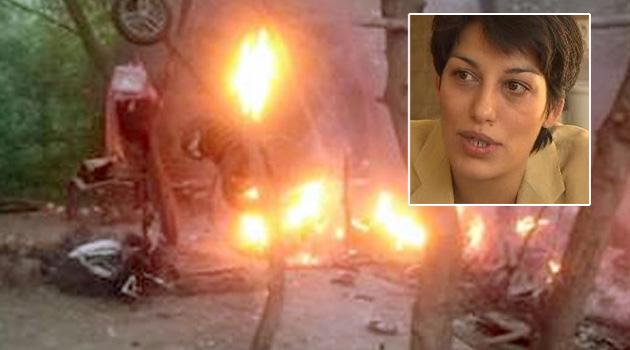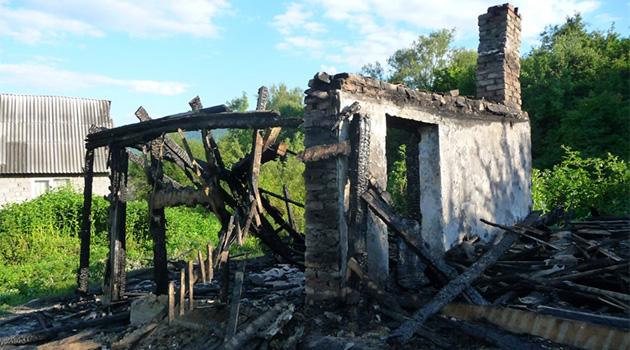Edita Stejskalová: OSCE should send observer missions to Ukraine regarding pogroms against Roma and monitor the police investigation

Speaking on Slovak Radio’s “Romani Word” (Rómské slovo) program, political scientist Edita Stejskalová said she believes the Organization for Security and Cooperation in Europe (OSCE) should take action regarding the recent fatal attacks against Romani people in Ukraine by creating an observer mission to monitor the investigation of the recent pogroms against Roma there. Stejskalová reminded listeners that from 2008-2009 such attacks against Roma were perpetrated in Hungary, that police in Slovakia have attacked Romani settlements in similar ways, and that a similar neo-Nazi arson attack in the Czech Republic led to the severe burning of a Romani child, Natálka.
The media are currently reporting such pogroms against Romani people in Ukraine. “This is a problem for all of Central Europe, but such attacks even happen in France,” Stejskalová said in the interview, adding that she believes governments are not taking enough steps to provide protection to all of their citizens.
“The governments live in relative calm when it comes to this issue because civil society is not playing the role it should,” said Stejskalová. “That sector must be louder and stronger.”
Stejskalová believes it is important the OSCE get involved in the situation. “I am surprised that the OSCE is not paying enough attention to this,” she said.
“One component of their agenda could be creating observer missions, because it’s one thing that the crimes are happening, these pogroms against Romani people, but the question is how they are being investigated,” she said. “We are reading in the media that for the time being nobody has been charged and that the way the information is being handled looks more like obfuscation.”
“These scandalous cases in Ukraine are, on the one hand, examples of organized crime, but on the other hand they also substantiate accusations of terrorism,” Stejskalová said. German activist and journalist Markus Pape was also interviewed on the program and said it is necessary to do something about the attacks very quickly.
“For the time being we do not know if this is a first wave of such attacks or whether they have been ongoing for years and the media is only now noticing. It is necessary for local authorities, EU bodies and UN bodies to focus on this and to pressure the Ukrainian Government to properly investigate these attacks and prevent their recurrence,” Pape said.
Neo-Nazis have recently been attacking Romani people in Ukraine on a regular basis, with the most serious such attack happening in the late night hours of 23 June and early morning hours of 24 June when a Romani man was stabbed to death and other Romani people were injured, including a 10-year-old boy. At the beginning of this month a Romani woman was also murdered in the town of Berehovo in the southern Transarpathian area, where Hungarian-Speaking Romani people live.
Arsonists also set fire to a house in the town of Perechyn. The Romani mother and her three children who were asleep in that home at the time fortunately managed to escape.
Prior to that incident there was an attack on 7 June in which neo-Nazis from the Azov National Militia used axes and hammers against a Romani encampment. That pogrom took place in a public park and was broadcast live on Facebook without police intervening at all.
In May neo-Nazi criminals attacked a Romani encampment in the western town of Ternopil. That attack was followed by arson in the nearby village of Rudne in Lviv Region.
In April members of the C14 neo-Nazi group drove Romani people away from an encampment in the Lysa Hora nature reserve in Kyiv. The masked assailants in that attack threw rocks and sprayed tear gas at the Romani children, men and women there.
